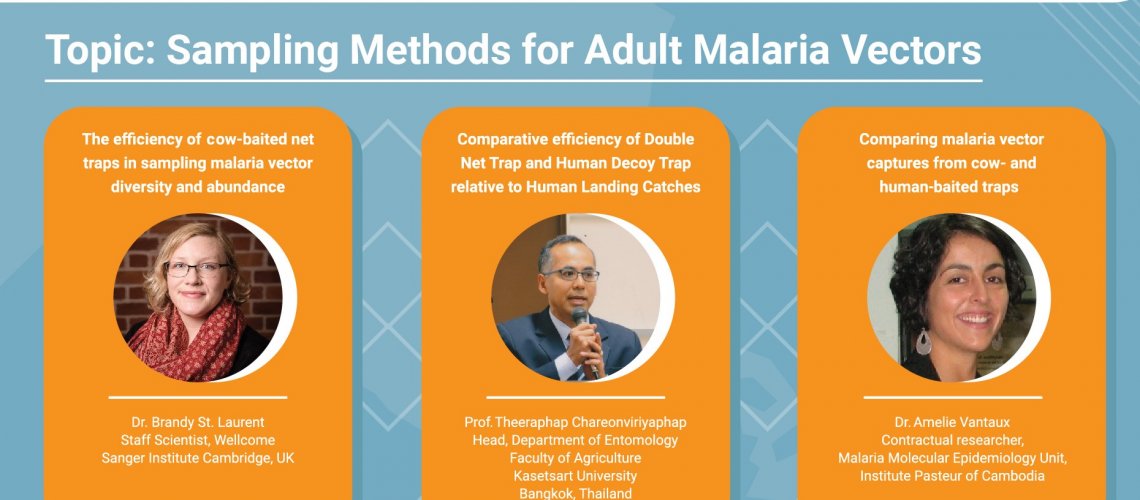The current COVID-19 pandemic has severely restricted our abilities to interact, resulting in postponed or even cancelled physical meetings and conferences. It has also disrupted very essential interventions, such as capacity-building training courses. And yet at the same time it has also made us re-think how we live our lives and conduct our business, so that in some ways COVID-19 has brought us out of our comfort zones to implement more cost-effective and innovative ways to get things done. So too it has impacted APMEN, and we have had to adapt.
APMEN has initiated a series of webinars to provide a platform for discussion and learning within target interest groups, and all initial signs are that it is receiving global interest and participation. First up in this series was the recent webinar entitled “Sampling Methods for Adult Malaria Vectors”, presented by the APMEN Vector Control Working Group as an exploratory venture into this new world (for us!) of virtual learning and conferencing. It turned out to be a significant success, with congratulations from many participants, and serves as great encouragement for us to continue with this webinar series. This first 90-minute event was attended by a global audience of 104, from 22 countries, representing Asia, Africa, Australia, Europe and North America. Most of our audience comprised vector control specialists, meaning we were able to reach the intended audience. As a network, we were also able to reach our core APMEN member countries, which comprised more than half of the audience. We thank all those of you who attended and hope you will continue to participate in this series of “APMEN TechTalks”, which we intend to hold at monthly intervals.
This first trial event was formatted as an 80-minute event, with three PowerPoint presentations on trapping methods by Professor Theeraphap Chareonviriyaphap, Dr Brandyce St Laurent, and Dr Amélie Vantaux, all internationally recognized scientists in their fields. That was followed by a Questions & Answers session, with a moderator to facilitate the process. We found the time allocation to be good (12 minutes per presentation, back-to-back), making it a tight event intended to encourage participation by people who lead busy lives and yet want to brush up on learning.
One colleague from Pakistan shared his thought “Currently working as a Medical Entomologist at Directorate of Malaria Control Islamabad, Pakistan, very passionate to learning new and innovative ideas and also share my field experienced and also challenges, which was faced during field” -- it really highlight the enthusiasm and the need for learning and how APMEN TechTalks can be very fulfilling.
COVID-19 has been a tragic once-in-a-lifetime major intrusion in the lives of all of us, but it has brought to the surface some things we can do to improve the way we live, work, and saving time and money along the way. These video-conferencing opportunities will almost certainly become a permanent improved way of conducting our business.
We are eager to listen to country’s needs and how we can best use this opportunity towards alleviating them. We are in this together - stronger as a collective group!
If you have any suggestion/requests for future webinars, please write to l.braack@malariaconsortium.org.
Access more info here: https://orene.org/training_group/apmen-techtalks-1/

